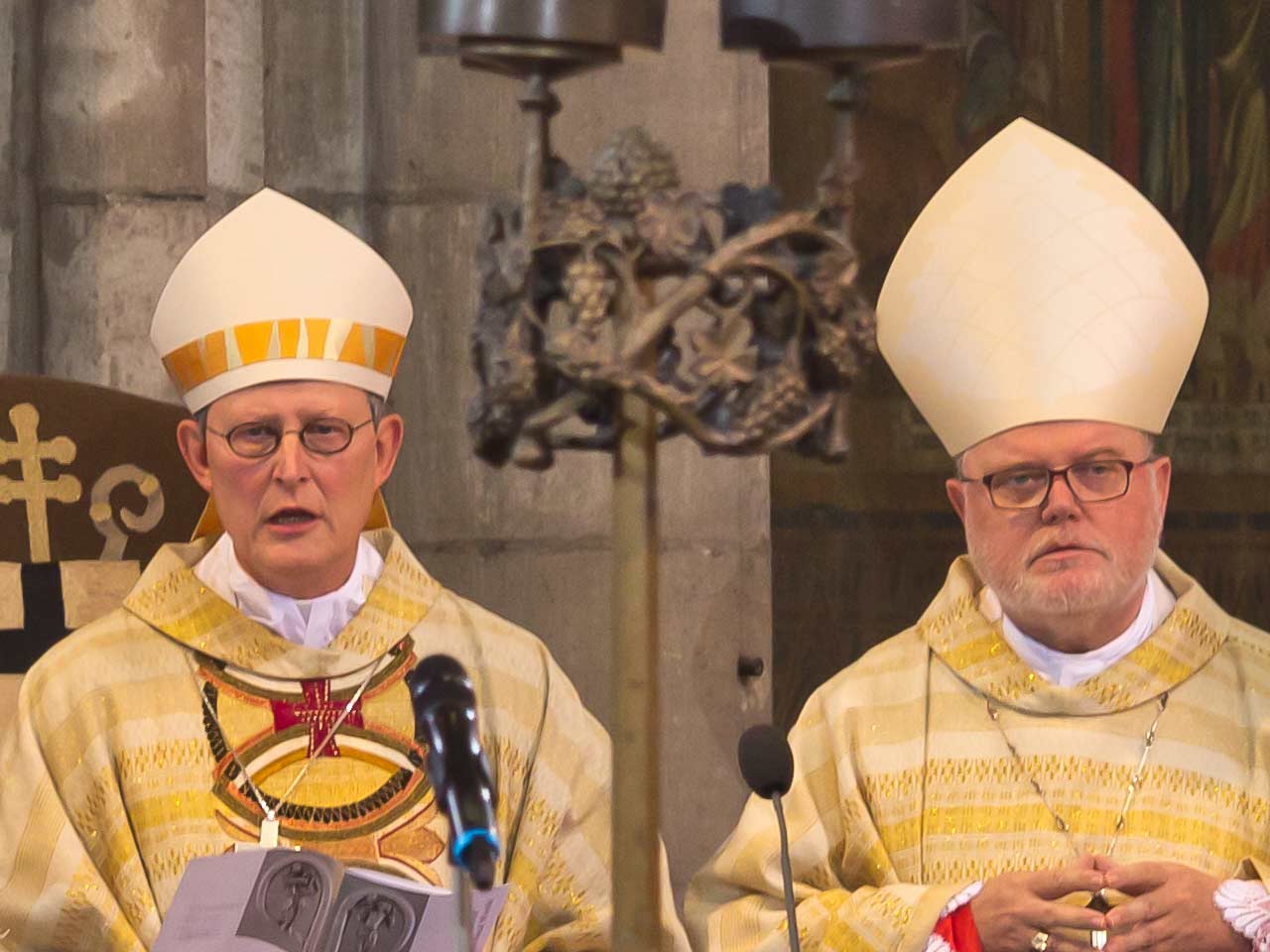LifeSiteNews reported a few days ago the inspiring piece of news that in Poland, 140,000 Catholics signed a petition to their bishops asking them to protect their teaching “from German errors.” At the same time, the German bishops had their spring assembly, during which they invited speakers who described the Polish Catholics as understandably “backward” due to their own Communist history and separation from the West and its ongoing discussions.
Let us first consider the affirming report about the strong traditional faith of the Polish Catholics. As LifeSiteNews wrote (emphasis added):
Over 140,000 Poles have signed a petition asking the nation’s bishops to defend Catholic teaching on marriage in the wake of the Pope’s controversial exhortation Amoris Laetitia.
Polonia Semper Fidelis, a group sponsored by Krakow’s Father Piotr Skarga Institute, posted the petition in January 2018, asking Archbishop Stanisław Gądecki, president of the Polish Bishops Conference, to preserve the faith in Poland from the “German errors.”
Specifically it calls on the bishops to affirm the indissolubility of marriage and the inadmissibility of divorced-and-remarried Catholics to the sacraments.
The letter warns that the problematic interpretations of Amoris Laetitia, promulgated especially by the German bishops, add to the immense confusion already faced by believers in the midst of today’s relativistic culture.
This initiative comes at a time when the Polish Bishops’ Conference is in the middle of writing up its own statement concerning Amoris Laetitia, thus certainly supporting an orthodox approach to this whole matter.
The recent German initiative of hosting certain outside speakers during their spring assembly – in Ingolstadt to address some “tensions” with Poland (as well as Hungary) – might also have to be seen in light of the current discussion about Amoris Laetitia in Poland.
According to a 21 February report of the German bishops’ news site, Katholisch.de, the German bishops listened to the opinions of Tomás Halík, Czech professor of sociology in Prague, and of the Hungarian expert in religious studies András Máté-Tóth. Halík is one of the two organizers of the progressivist Pro Pope Francis initiative, which collected more than 70,000 signatures in support of Pope Francis and his reform agenda. Máté-Tóth is also a signatory.
During their talks, both non-German speakers made it clear that there exist strong differences between Germany, or the West, and some of the Eastern European countries, such as Poland and Hungary, when it comes to topics such as immigration and marriage. Halík, according to Katholisch.de, said that while populist movements are a global phenomenon, they might be further strengthened in Eastern Europe by “a cultural and psychological crisis of identity following the fall of Communism.”
Katholisch.de continues, saying such differences are to be seen especially with the Polish bishops when dealing with the papal document Amoris Laetitia: “While the German Bishops’ Conference subsequently admitted the remarried divorcees [sic] in individual cases to Holy Communion, the Polish bishops insist upon the heretofore practiced exclusion [sic] of this group of persons.”
The report adds (emphasis added):
These opposing theological conceptions concerning marriage and family, as the Hungarian expert in religious studies András Máté-Tóth explained, stem from the fact that the Communist past of the former Eastern Bloc states has delayed the process of discussion which took place within the Church. In the churches of Western Europe, such a discussion has already taken place after the Second Vatican Council in the 1960s, whereas in the churches of Middle and East Europe, it only started after the decline of Communism in 1990, according to the professor from the University of Szeged[, Hungary].
It is important to note here that Katholisch.de reports on these speeches uncritically and that it does not report that there was any objection against such claims coming from any of the German bishops present. We remind our readers in this context that in 2015, this same website roused a controversy by publishing an article by one of its regular contributors who claimed that the Church in Africa is growing “because the people there are socially detached and do not have anything else but the Faith,” because people’s educational level is “low,” and because people “accept simple answers to difficult questions of Faith.” (While the author of this article, Björn Odendahl, later made a sort of an explanation – without withdrawing his article – the damage was done.)
Both non-German speakers at that spring meeting, however, stressed that dialogue is necessary, and one of them stressed that “the German position in this question” need not become the measure of all things. During the German bishops’ discussions, it was highlighted by Archbishop Ludwig Schick that one could learn from the Polish Catholics with regard to their popular devotions – “for example, the Marian devotions,” which have gotten lost nearly altogether in Germany.
Poland and Hungary are the two Eastern European countries strongly opposed to the aggressive and permissive immigration policies stemming mainly from German chancellor Angela Merkel. The Catholic Church in Germany has aligned herself completely with Angela Merkel’s agenda, thus distancing herself from any political movements in Germany that try to resist the massive immigration from non-European and non-Christian nations. The German bishops have lined up with Pope Francis in this matter, just as they have done with regard to the question of the “remarried” divorcés and their access to the sacraments.
It seems that the neighboring countries of Germany and Poland might be experiencing a clash of two different religious cultures within the Catholic Church – the one orthodox, the other progressivist – made all the clearer and more intense due to the geographical proximity of these nations’ respective Catholic citizens.
May the Blessed Mother be the protectress of those – in both countries – who try to protect and defend Christ’s teaching on marriage and the family.


